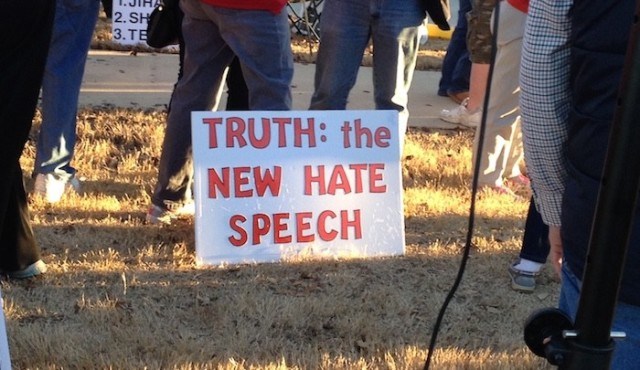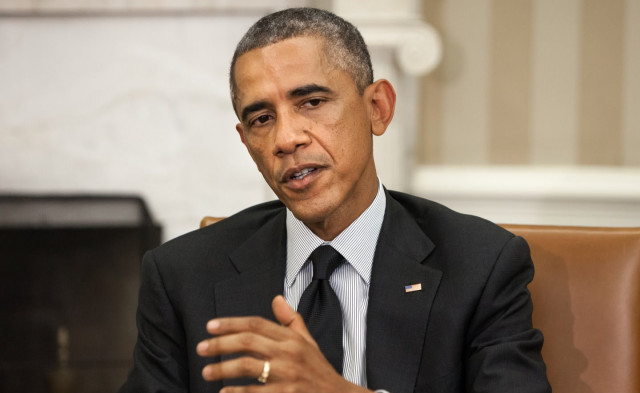While college students have been touring Europe, saving rainforests, or interning at high-powered government offices, college faculty and administrators have been preparing for the upcoming school year and the biggest problem that afflicts our institutions of higher learning: microaggressions.
Many people are unaware of microaggressions, but they lurk around every corner, in every classroom, dorm room, locker room, library cubicle, coffee shop, cafeteria, and under every tree and shrub on our bucolic campuses.
The journal that reports on everything important on our campuses, the Chronicle of Higher Education, explains microaggressions. This summer, it featured two lead articles on the problem.
The first, an essay, “Microaggression and Changing Moral Cultures” by sociology professors Bradley Campbell and Jason Manning, offers a good definition: “Microaggressions are remarks perceived as sexist, racist, or otherwise offensive to a marginalized social group.” And, “even though the offenses are minor and sometimes unintentional, repeatedly experiencing them causes members of minority groups great harm, which must be redressed.”
A fellow University of Virginia sociologist, Donald Black, elaborates: moral cultures are products of social conditions, and “acts of social dominance — such as belittling someone with insults,” are “more offensive in places or relationships where people are relatively equal. Likewise, acts of cultural intolerance. . . .” (The full disquisition is here.)
The Groundbreaking Discovery of Microaggressions
Chronicle reporter Peter Schmidt, in the companion investigative piece, reveals that microaggressions were discovered back in 1970 by Charles M. Pierce, a professor of education and psychiatry at Harvard’s medical school.
Those who still have images of the Confederate flag or Playboy centerfolds in their subconscious need special workshops, led by sociology and psychology professors.
In those days, the scourge was limited to “the subtle slights and insults that black people regularly experience at the hands of people who do not see themselves as racist.”
Thirty-seven years later, “a detailed taxonomy” of microaggressions was published in the American Psychologist, with the lead author of the research team and crack scientist Derald Wing Sue, a professor of psychology and education at Columbia Teachers College. In 2010, came the definitive Microaggressions in Everyday Life.
Sue explains that solutions are not as simple as, say, taking down Confederate flags and Playboy centerfolds from faculty office doors. Those who still have images of the Confederate flag or Playboy centerfolds in their subconscious need special workshops, led by sociology and psychology professors.
Most academics, being the placid creatures that they are, go along, accepting such directives as the price they have to pay for being able to work in cut-offs and Birkenstocks. But there are resisters, such as Eugene Volokh, a University of California-Los Angeles law professor, who defiantly writes, “I am going to keep on microaggressing.” No doubt Volokh has a bomb shelter filled with freeze-dried food staples and adorned with a Confederate flag.
The Solution: More Sociology Professors
Perhaps the professor needs a little explaining? Here is something from the Chronicle:
We can better understand complaints about microaggression and the reactions to them if we understand that each side of the debate draws from a different moral culture. Those calling attention to microaggressions have rejected the morality dominant among middle-class Americans during the 20th century — what sociologists and historians have sometimes called a dignity culture, which abhors private vengeance and encourages people to. . . . (This message would best be delivered to Volokh with a trickling water fountain and soft Indian zither music in the background.)
With professors across the land trained in conflict resolution and peace studies, we have hope. Consider the sociology professors’ thoughtful conclusion:
“Surely each side would benefit from a better understanding of the other. Debates might be more fruitful, and relationships on campus more collegial, if we more carefully considered the moral concerns of those who disagree with us. That does not mean the conflict engendered by this moral divide won’t or shouldn’t go on.”
I like that. There can never be too many discussions, meetings, roundtables, training sessions, reports, memos, marches, peace circles, teach-ins, sing-alongs, and group hugs at our institutions of higher learning.
Passing the Microaggression Baton to a New Generation
Here is what is happening in the new frontier of ending hurtful things: Students are reporting microaggressions through such places as the student-initiated Microaggression Project. Others use Facebook. Binghamton University, Brown University, Wellesley College, and Yale University lead the way. Thanks to being properly educated about the “Red Scare,” students are not burdened by misgivings.
Even sweet grandmas need re-education.
Some institutions have followed students’ lead and now have an “institutionalized recognition of microaggression.” Ithaca College has passed a bill “calling for a campuswide online system through which students could anonymously report microaggressions.”
At Fordham University, students describe microaggressions they have suffered in a mug-shot digital photo project. One plaint, about being asked, “So . . . you’re Chinese, right?” made me weep with guilt. Microaggressions can also happen far off campus. They occur when a female student is asked by a female relative if she has met “any nice boys.” Perhaps committees could prepare a brochure for freshpersons to take with them to protect them from such microaggressions from Grandma as the turkey is passed around? Even sweet grandmas need re-education.
There is one safeguard I wished I’d had when I was working as a graduate teaching assistant and being bombarded with microaggressions from freshmen who said they needed “at least a B” to keep their HOPE scholarships: A union contract. The Wisconsin graduate student union contract, for example, protects against microaggressions.
But in that most advanced state, California, the entire university system has issued guidelines to faculty, warning that such statements as “America is a melting pot” or “I believe the most qualified person should get the job” could be considered microaggressions.
Here, close to where I live and work in a safe space called the Alexander Hamilton Institute for the Study of Western Civilization, the local college responds to students’ needs with unequaled dedication. Last December, way-stations in the library assisted students assaulted with the trauma of final exams. One table offered coloring books and crayons, another jigsaw puzzles, another Legos. A bulletin board was set up for sharing tips. One heart-felt Post-It note read simply, “Cry!”
Colleges Target Microaggressions
According to a top-secret memo leaked to me, it appears that Hamilton College committees have put the same diligence into coming up with ways to combat microaggressions.
Imagine what would happen were a student to encounter a menu with fried chicken and watermelon!
The Working Group on Diversity and Inclusion has been toiling away for nigh a year now. The members have presented the initial findings in five areas of needed improvement. They are:
- Campus climate: a sense of belonging, with historically marginalized communities not only being tolerated but appreciated. The latter objective will be met with “social belonging/activities over the weekend” and “access to familiar comforts (foods, cultural events, services such as barbers, etc.).”
- Bias and microaggressions: eliminating “unconscious bias / ‘isms’” “insensitivity / misunderstandings / misconceptions,” and “anonymous acts of bias/discrimination, especially on the internet and social media sites.”
- Student training and education: Diversity programs will also be conducted outside of the classroom.
- Faculty and staff training: Mandatory trainings will be conducted at faculty orientations and will include instruction on how to value others. In performance reviews, staff will be evaluated negatively for failing to intervene or missing opportunities to “educate others.”
- Diversity issues in the curriculum: Faculty will be required to offer a more diverse curriculum in their classes.
Additionally, diversity trainings, such as “Difficult Dialogues,” Safe Zone Trainings by the Rainbow Alliance, an MLK Winter Book Read, a Division of Student Life training on microaggressions, a training session on acceptable theme party costumes, a transgender issues workshop, and a Ferguson Teach-In, will take place.
Recommendations include recruiting more “staff of color,” collaboration with human resources, Staff Assembly Council, and other campus offices, mandatory bystander student training, diversity training (in addition to current online sexual harassment and Title IX training), redesigning use of common social spaces, and encouraging student groups to involve faculty and staff in their events.
The Price of Comfort Is Eternal Vigilance
I would like to commend this committee for such a visionary, far-reaching list. Who would have thought of “unconscious bias / isms,” sins of omission, and food microaggressions? However, I must warn the good members: unconscious biases deep within the hearts and minds of cafeteria workers could sabotage such efforts. We know from news reports last year the harm done to students when fried chicken and collard greens were served during Martin Luther King Jr. week!
Imagine what would happen were a student to encounter a menu with fried chicken and watermelon! And while faculty certainly have the maturity and cultural awareness to enjoy their margaritas on Cinco de Mayo, our young fragile flowers might think we are stereotyping them with a taco night on May 5.
Let us not allow our students to be traumatized and scarred for life by… Any of the myriad ways microaggressions take place.
The times demand strong action. Let us not allow our students to be traumatized and scarred for life by stereotypical food, looks, refusals to make eye contact, prolonged eye contact, inappropriate conversation starters, smiling too much, or smiling too little—or any of the myriad ways microaggressions take place.
We must put in safety measures on every campus. Let the best and brightest STEM minds come together—as they once did during Sputnik—to come up with a national solution. I challenge fellow American professors to come up with a device that will measure hostilities, unconscious biases, and repressed hatreds, within not only our professoriate, but also the youth, the hope of the future. Stopping microaggressions is too important a matter to be left to chance. Bystanders may not be able to spot them soon enough. The objects of microaggression might be too lost in thought or their iPhones to notice a microaggressive stare or question.
Great scientific minds have come up with such devices for other species, such as our quadruped companions, lest they be tempted by squirrels or cats to run from the safety of yards. If we can make devices that these wear, why not one for our students and faculty? These devices could measure biorhythms, such things as heart rates, pupil dilations, and body temperature. We already, thanks to the U.S. Department of Education and the Gates Foundation, have devices that measure “social and emotional learning” and assess for such things as “grit” and “perseverance.” In fact, the department’s National Assessment of Educational Progress, which used to test for such irrelevant things as historical knowledge, is now testing for “grit.”
So, whenever a hateful or angry thought would come into consciousness a gentle little tingle would remind the offender, “Do not hate. Do not microaggress.” It would quickly end a hostile stare with a head jerk that would also conveniently alert the object of the microaggressive act that the subject needs further re-education. These devices could even be designed as fashion accessories, as gender-neutral brass chains or with colorful fair-trade beads.
Junior and contingent faculty would benefit immensely from being zapped. No doubt energetic convulsions shaking instructors at the lectern would bring forth healing peals of laughter from students. Humor does so much to ease anxiety. There would be no more concerns about “student engagement,” no worries about students nodding off or web-surfing. Not when lectures are so electrifying.
And we must not forget the “workers.” That lady behind the cafeteria counter would certainly benefit from a gentle shock to remind her that, if watermelon is to be served, it should be in a nice vinaigrette with a little bit of mint.
EDITORS NOTE: This column originally appeared in The Federalist.



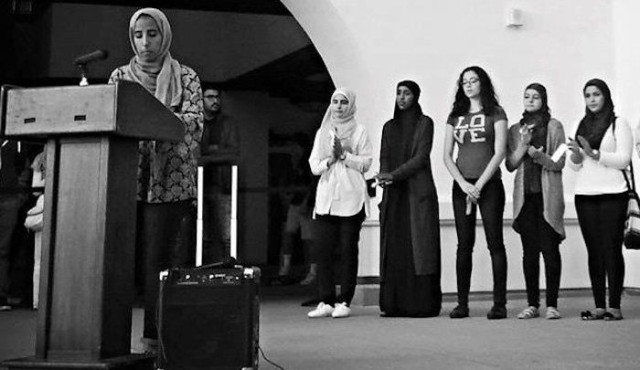

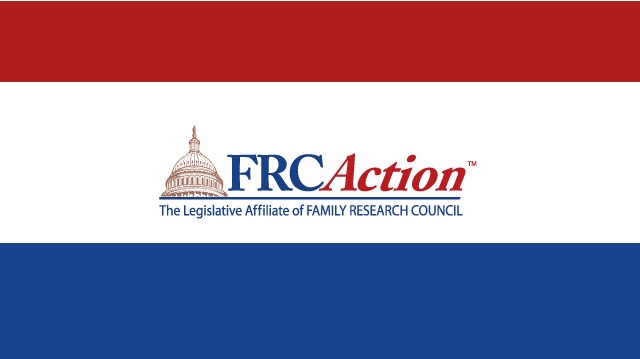




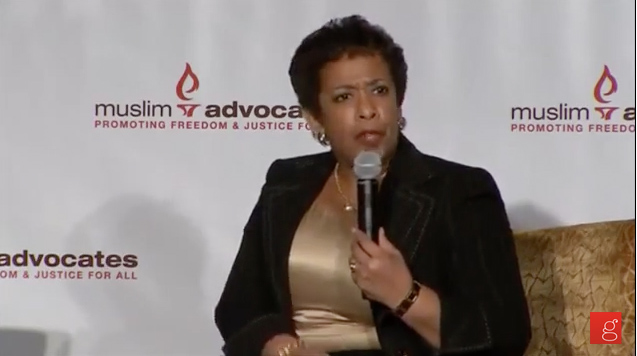
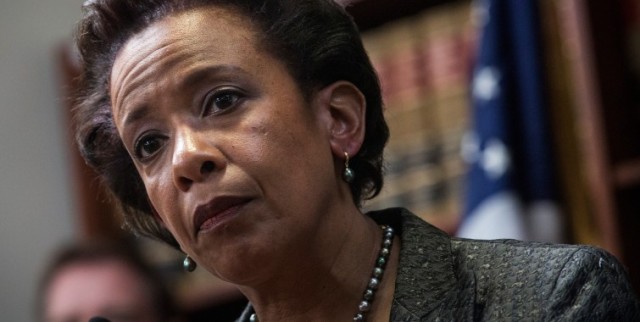
 On Thursday, Dec. 5, 2015, Attorney General Loretta Lynch threw down the gauntlet in a speech before the Muslim Advocate’s 10
On Thursday, Dec. 5, 2015, Attorney General Loretta Lynch threw down the gauntlet in a speech before the Muslim Advocate’s 10